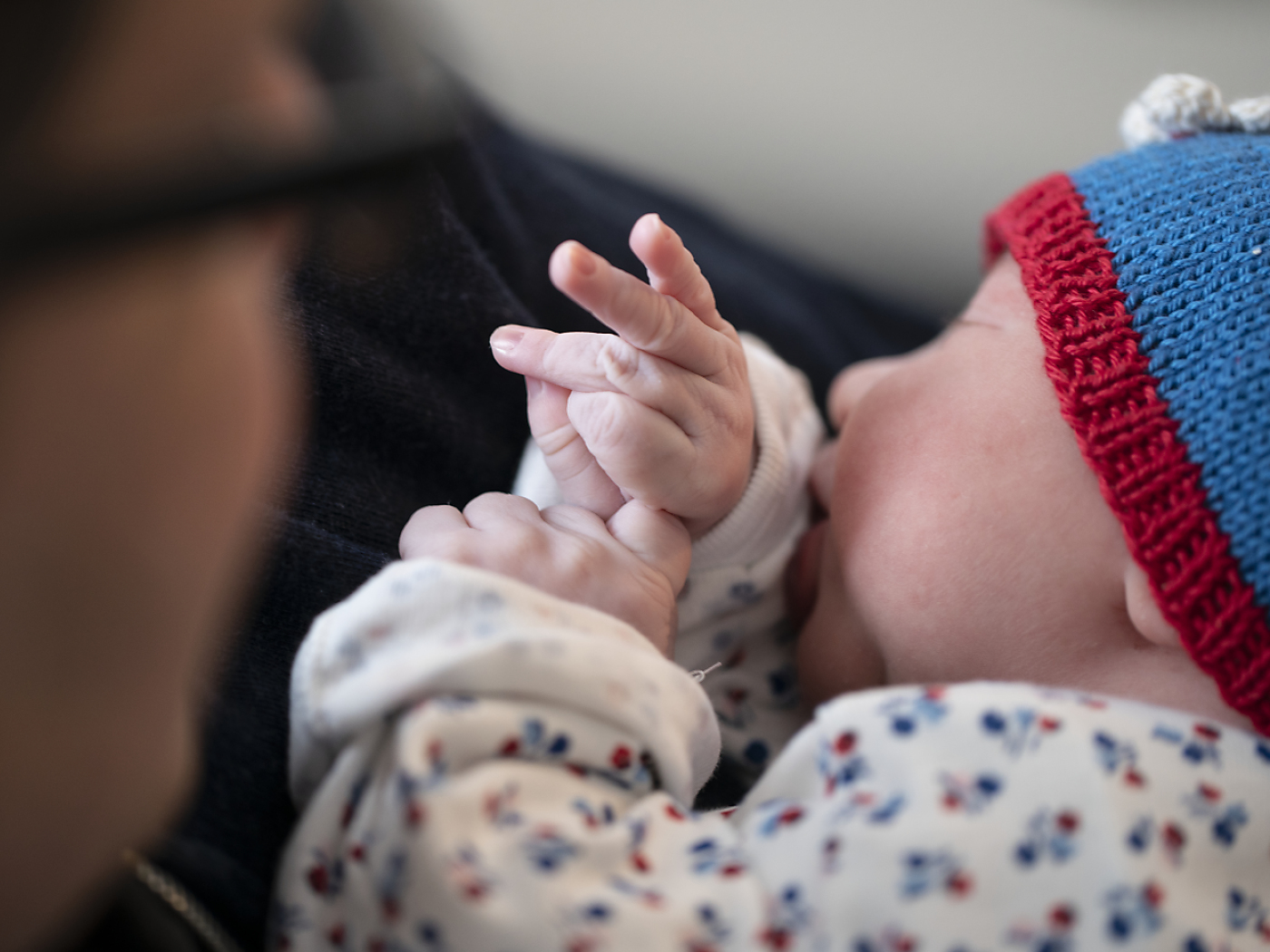
Mia and Noah most popular names for Swiss babies in 2023

Mia and Noah were the most popular first names for newborns in Switzerland last year. Mia knocked Emma off the top spot, while Noah retained his first place among boys.
+Get the most important news from Switzerland in your inbox
Mia was followed by Emma and Sofia, while Noah was followed by Liam and Matteo, the Federal Statistical Office (FSO) said on Friday in its annual name hit parade.
This is Mia’s seventh time at the top of the list, having already topped the rankings in 2013, 2015, 2016 and from 2019 to 2021. Noah has also been one of the most popular names for over a decade and was already at the top in 2010, 2011, from 2013 to 2017 and in 2021 and 2022.
+ ‘J’ is not a name, rules Swiss court
Vera made the biggest leap forward for girls, rising 114 places, while Kiyan climbed 186 places in the popularity rankings for boys. Thea fared the worst last year, dropping 63 places. Maxime was the biggest loser among the boys, dropping 68 places.
There was no change in the overall permanent resident population: Daniel and Maria remained the most common first names in the permanent Swiss resident population.
+ Luca and Lara named pram king and queen
Müller, Meier, Schmid
Müller, Meier and Schmid are at the top of the list of surnames in Switzerland: there are 53,170 Müllers in total, yet they only make up 0.6% of the population; 32,657 people were called Meier and 30,332 Schmid.
In French-speaking Switzerland the surname da Silva topped the rankings with 10,287 people; in Ticino it was Bernasconi with 2,250 and in Romansh-speaking Switzerland Caduff with 230 people.
According to the FSO, the variety of names in Switzerland is enormous. There are over half a million different surnames, including different spellings.
Translated from German by DeepL/ts
This news story has been written and carefully fact-checked by an external editorial team. At SWI swissinfo.ch we select the most relevant news for an international audience and use automatic translation tools such as DeepL to translate it into English. Providing you with automatically translated news gives us the time to write more in-depth articles.
If you want to know more about how we work, have a look here, if you want to learn more about how we use technology, click here, and if you have feedback on this news story please write to english@swissinfo.ch.

In compliance with the JTI standards
More: SWI swissinfo.ch certified by the Journalism Trust Initiative





























You can find an overview of ongoing debates with our journalists here . Please join us!
If you want to start a conversation about a topic raised in this article or want to report factual errors, email us at english@swissinfo.ch.